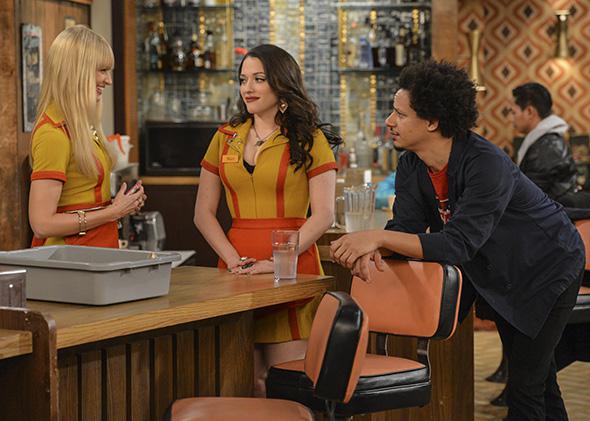Gladiators,
Willa Paskin, did you just call Last Tango in Halifax dull? Someone hold my glasses, because them’s fighting words. If true love is tedious, then sure, it was a snoozer, but if there is the slightest bit of romance in your heart, the series was, like actress Sarah Lancashire, quite magnificent.
Nevertheless, I was a bit nervous about putting it on my list, because it’s not exactly cool to confess a passion for PBS programming. (At least not since the early days of Downton Abbey.) Especially a romance involving women of a certain age. But you know what? I also adore Foyle’s War—Christopher Foyle is the finest man I (don’t really) know; I wept when Inspector Lewis got together with Dr. Hobson; and I took a shine to the Inspector Morse prequel Endeavour, even though PBS’s little edits made a dog’s dinner of at least one of the mysteries. These days it’s easier to admit a taste for high art and low thrills than for the gentle geriatric serials that once represented “quality TV” to Americans, but screw it, I hereby affirm my fandom.
And let me disabuse you of another notion: I am by no means “slogging it out” with 2 Broke Girls. That suggests that I find watching the show to be a chore. Quite the opposite. It is a thrill ride. The setup is just so weird: Two Brooklyn diner waitresses in a nonsexual but very co-dependent relationship also run a late-night cupcake outlet and keep a horse in the backyard of their garden apartment. Oh, and as of a few weeks ago, once-wealthy-now-penniless Caroline is also putting always-penniless Max through the Manhattan Pastry School by working in the school’s office. This is American capitalism gone mad!
Watching 2 Broke Girls is like going to a bullfight (another cultural experience that some people find appalling): One’s appreciation of the artistry is enhanced by the knowledge that something could go horribly wrong at any moment. On 2BG, Max and Caroline don’t have to worry about being gored, but the writers do love to torture them. The humiliations are often physical: anal leakage, loss of bladder control, endless wardrobe malfunctions. But they’re also routinely subjected to the kinds of quotidian insults low-wage workers face on a daily basis.
To be sure, the show traffics in cheap humor, and race is definitely part of the mix. I’m uncomfortable when the employees make fun of Han, the diner’s Korean immigrant owner—ribbing that is undoubtedly racialized in that they riff on his small stature and his sexual immaturity. The racial politics are certainly tricky, given that Max and Caroline are the only white, native English-speakers in the diner. Nevertheless, they don’t have that much more power than the old black guy who works the till, the gay Latino waiter, and the sex-crazed Russian short-order cook—so they mouth off at the boss, who happens to be Asian, using harsh words, the only tools at their disposal.
Ach, but I am way over-intellectualizing this junky, imperfect show. Willa, you quoted from “Trash, Art, and the Movies,” so let me do the same. Kael claims, “Patrons of burlesque applaud politely for the graceful erotic dancer but go wild for the lewd lummox who bangs her big hips around.” 2 Broke Girls is the lewd lummox. She never fails to make me ask, “What the hell was that?” But I’m always watching.
OK, this is a smidgey bit inside baseball, but I have a question for the three of you, but mostly for Jim and Mo, since they’ve been writing about television the longest. We’ve all mentioned some aspect of television’s evolving delivery mechanism—all those streaming options and web series—but it seems to me that the culture of television has also undergone an enormous transformation in the last few years. I’m thinking of the way that actors, writers, showrunners, and studio execs hang out on Twitter—building buzz for their shows, being fierce, sometimes alienating people—but also about the way everyone writes so much about shows these days.
This isn’t a new phenomenon, but it doesn’t seem to be going away. In 2013, I wrote weekly analyses of Downton Abbey, The Americans, Breaking Bad, and American Horror Story: Coven. Now, I know my list is the equivalent of a slow night for someone like Alan Sepinwall, but I’m not a full-time TV writer. How has writing weekly reviews and/or recaps changed the way you respond to television—and do you still find them useful? Do we short-change comedies, which rarely get the weekly treatment? Speaking for myself, I judge a show by how well it stands up to really rigorous—or, at least, extensive—analysis, but it can also be exhausting. For example, I can’t even consider reading or writing another word about Breaking Bad, Jim, so I’m going to dodge your question.
Like the BBC, I’m British and commercial-free,
June
